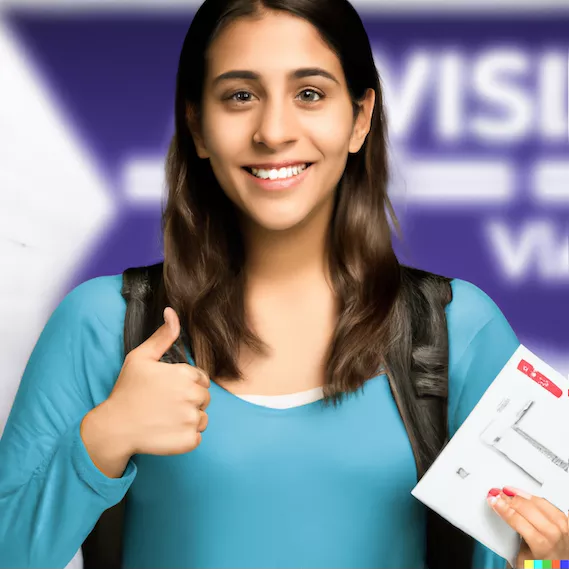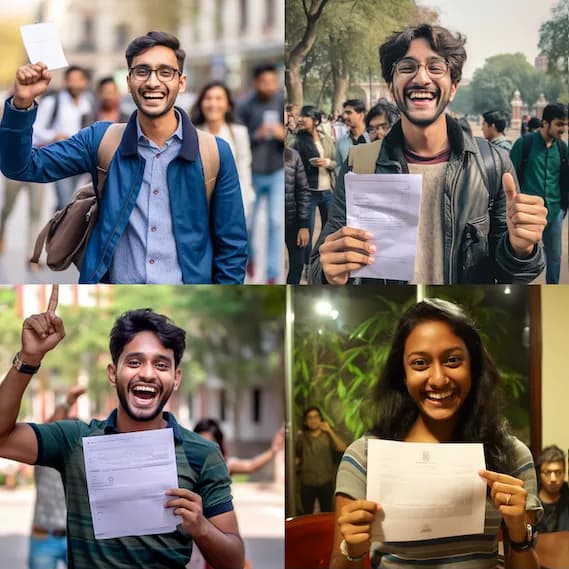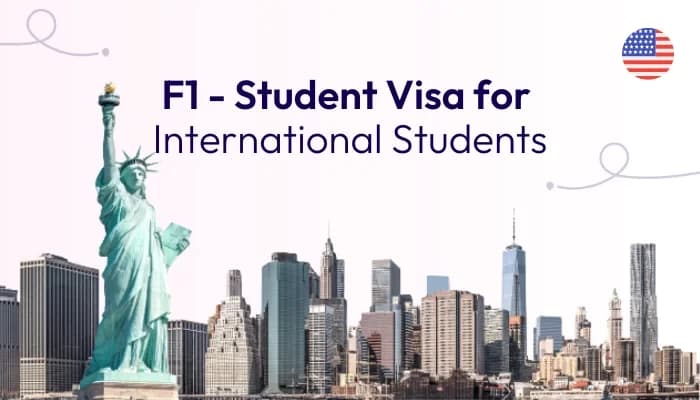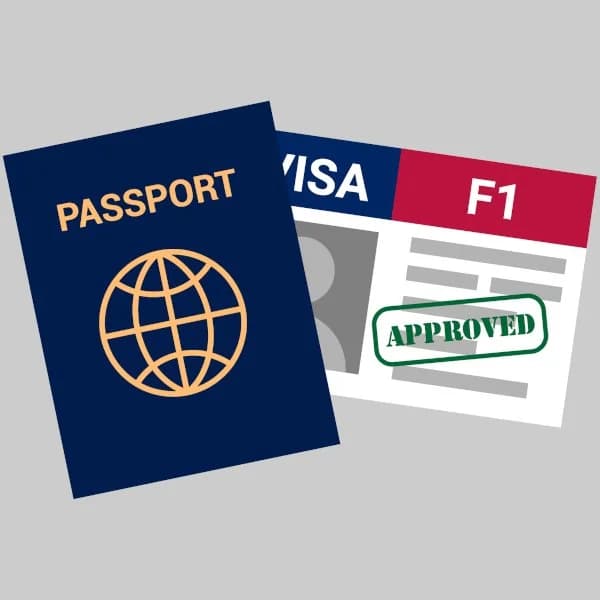F1 Visa Interview: What changes have you brought after your previous F1 visa rejection?

Key Highlights
- Acknowledge your previous rejection and show you've learned from it.
- Clearly explain the reasons for your previous rejection (e.g., financial issues, ties to home country).
- Describe the concrete changes you've made since your last interview.
- Provide supporting evidence such as bank statements or business registration when requested.
- End on a positive note, showing your excitement about studying in the US.
- Be honest, specific, and confident about your plans for the future.
- Maintain a calm and respectful demeanor throughout the interview.
The F1 visa interview is the last step of the US student visa process, and success means being able to study in the USA. The US government wants to ensure that every student who is granted an F1 visa is a genuine student and has no intention of violating the immigration laws of the country. Obtaining a US visa is a challenging task for many students, as many are rejected on their first attempt. For subsequent attempts, one of the most critical questions students must be ready to answer is: "What changes have you made since your previous F1 visa rejection?" or "What has changed since your last visa interview?" In this blog, we will provide guidance on how to answer this question and prepare you for a successful interview.
Step 1: Acknowledge the previous rejection
You should start by acknowledging the previous rejection. You might not want to talk about it but it's necessary to make sure you are not trying to hide anything from the counselor officer. Your response can start by “Yes, I was previously rejected for an F1 visa, but I have taken steps to address the reasons for the rejection.”
Step 2: Explain the reasons for the rejection
Counselor officers know the reason why you were rejected last time. Therefore, be prepared to explain the reasons for your previous rejection. You should have a clear understanding of why your visa was rejected. Most common reasons for visa rejection are a lack of financial resources, insufficient ties to your home country, and failure to prove that you are a genuine student. You should be honest and provide a detailed explanation of the reasons for your rejection.
Step 3: Describe the changes you have made
This is the most critical part of your answer. You must convince the counselor officer that you have made changes based on your previous rejection and now you qualify for the US student visa. This could be changes to your financial situation, a stronger connection to your home country, or additional evidence that you are a genuine student. Be specific about the steps you have taken. For example, if you were rejected for a lack of financial resources, you could say, "Since my previous rejection, my parents deposited $40,000 in the bank and saved it to cover my expenses for the first year of my studies."
Step 4: Provide evidence to support your changes
To further strengthen your answer, you can say to the counselor officer that you have evidence documents with you to support the changes you have made. If the officer asks you to show the evidence, then you can take it out and show them so that they know it is genuine. This could be bank statements, or scholarship documents or additional documents that demonstrate your ties to your home country. You want to show the interviewer that you are serious about studying in the US and that you have taken concrete steps to address the reasons for your previous rejection.
Step 5: End on a positive note
Finally, end your answer on a positive note. You want to leave a good impression on the interviewer and show that you are excited about the opportunity to study in the US. You can say something like, "I'm confident that the changes I have made since my previous rejection will demonstrate that I am a genuine student and that I have no intention of violating the immigration laws of the United States. I'm excited about the opportunity to study in the US, and I look forward to the possibility of being granted an F1 visa.”
Sample Answer 1:
"Yes, I was previously rejected for an F1 visa because I could not convince the visa officer that I have enough financial resources to cover my expenses of my studies. Since then, my parents have saved and deposited $40,000 USD (say $5000 more than your cost of attendance) to Nepal Bank (any bank is okay) for my studies. I have the bank statements and my parents' income documents as evidence of my financial stability. Would you like to see these documents?"
Reasoning:
In this case, a student was denied due to insufficient financial resources. This is a common reason for rejection, as the US government necessitates proof that the student can cover their educational and living expenses without becoming a financial liability. This particular student, demonstrating a commendable understanding of their rejection and a proactive spirit, along with their parents, made a sizable deposit into a bank account specifically set aside for educational expenses. They were even prepared to present bank statements and income documents as tangible proof of their financial readiness.
Sample Answer 2:
"During my previous F1 visa interview, I was not able to convince the interviewer that I have strong ties to my home country. Since then, I have volunteered at a local NGO and have been actively involved in community service projects. I have also started a small business called Nepal Spice Restaurant with my family, which I plan to continue even when I am studying in the US. I have attached my volunteer certificates and a copy of my business registration as evidence of my ties to my home country. With these changes, I am confident that I will receive the visa and fulfill my dream to get US education and work in the development of Nepal."
Reasoning:
In this case, the student was not able to convince the visa officer that they have strong ties to their home country. This is important because the F-1 visa is a non-immigrant visa, and the student must demonstrate that they intend to return to their home country after their studies. By engaging in community service and starting a local business, the student has shown significant involvement and investment in their local community. This demonstrates a stronger connection to their home country, and thus a higher likelihood of returning after their studies.
Sample Answer 3:
"My previous F1 visa rejection was due to my inability to demonstrate that I am a genuine student. Since then I have secured good score in SAT and TOEFL / IELTS and have applied to multiple universities and have received 80% scholarship from this new university (changed university from previous). With the scholarship, my expenses will decrease by 80% which makes it easier to study. Moreover, the new university has top rated faculty members and research facilities such as New University Research center in my field which will help me to gain top notch education. I can provide you with the university I-20 and scholarship documents if you want to see it. I'm confident that the changes I have made since my previous rejection will demonstrate that I am a genuine student and that I have no intention of violating the immigration laws of the United States. I'm excited about the opportunity to study in the US, and I look forward to receiving an F1 visa"
Reasoning:
In this answer, the student was previously unable to convince the visa officer that they were a genuine student. This could mean they did not provide enough evidence of academic preparedness or seriousness about their studies. By scoring well on standardized tests and securing a scholarship from a reputable university, the student demonstrates not only academic capability but also a serious commitment to their studies. Mentioning the university's high-quality faculty and research facilities further emphasizes their interest in academics. By offering to show the I-20 form and scholarship documents, they provide solid evidence to support their claims. The student also reassures the visa officer of their understanding and respect for US immigration laws, which is crucial for getting a visa.
In conclusion, answering the question of what changes you have made since your previous F1 visa interview rejection can be daunting, but it's essential to be honest and provide a clear explanation of the steps you have taken. By following the steps outlined above and providing concrete evidence to support your changes, you can increase your chances of being granted an F1 visa and fulfilling your dream of studying in the US.
Stick with this topic by reading the comprehensive blogs below!
How to Tackle 'What Will You Do If I Reject Your F1 Visa?' question in a US Visa Interview
Overcome F1 Visa Rejection: Turn Denial to Approval
Why most Students get Rejected in F1 Visa Interview?
After F1 Visa Rejection: How to Bounce Back in Your Next Interview
Have Questions About This Topic?
Join our community to get personalized advice and share experiences with others going through similar visa processes.





